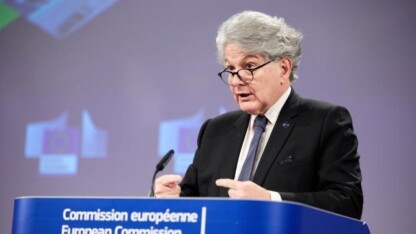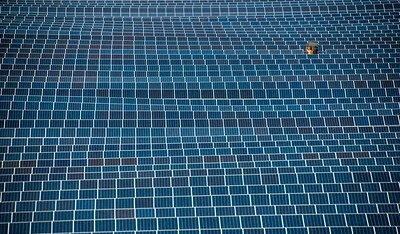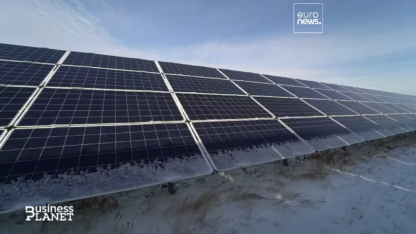Last 30th of June, the Dutch government awarded the SolarNL project with a total of €312M grant plus a €100M loan under the National Growth Fund. Supporting large-scale production of ‘circular’ solar cells and panels within the Netherlands, SolarNL will boost the manufacturing and integration of solar energy solutions, while contributing to the energy transition and fostering energy independence for the Netherlands and the European Union.
The SolarNL program represents a collaborative effort between industry and research institutes, focusing on developing and large-scale production of circular integrated high-efficiency solar cells and panels within Dutch borders. By establishing a robust supply chain involving material suppliers, machinery manufacturers, production facilities, and companies adopting integrated solar panels on a significant scale, SolarNL comprises 3 program lines that should make the Netherlands an important player in PV production over the coming years.
SolarNL’s ambitious agenda includes the development and industrialisation of three innovative solar photovoltaic (PV) technologies:
- High-efficiency silicon heterojunction (HJT) cells: with an efficiency starting at 25%, a 300 MWp/yr pilot production line will be built in 2024 and scale it up to 3 GWp/yr full capacity by 2026.
- Flexible perovskite foils: SolarNL seeks to explore the use of flexible perovskite foils as a versatile and adaptable solar PV solution.
- Customized solar PV products for integration: SolarNL aims to develop customized solar PV products tailored for seamless integration into buildings and automotive applications.
Besides, researchers from the consortium will combine the results of the program lines into a novel “tandem” PV technology with a very high efficiency surpassing 30%. It is also planned to initiate the industrialisation of this tandem solar panel and foil technology.
SolarNL operates as a consortium comprising nine local solar technology companies, including 3 members of the European Solar PV Industry Alliance (ESIA) – , MCPV, Solarge and Exasun., The other companies include HyET Solar, Compoform, Energyra, Lightyear Layer, IM Efficiency, and Taylor. Additionally, six universities (Amsterdam, Delft, Eindhoven, Groningen, Twente, Utrecht), three universities of applied sciences (Hanze University of Applied Sciences, Saxion, Zuyd), and research organisations TNO and NWO Institute AMOLF actively participate in the consortium.
The SolarNL program represents a total investment of €898 million, with €586 million being financed by private sources. The government’s support through the National Growth Fund amounts to €312 million, while a further €100 million will be made available through InvestNL as a loan.
The SolarNL program holds tremendous potential for the Dutch economy, with an anticipated annual added value of €500-700 million by 2031 and cumulative benefits of €20-25 billion by 2050. Moreover, local production of solar products will play a vital role in achieving national climate targets for 2030 and 2050, while bolstering strategic autonomy in energy supply.
The investment of €312 million through the SolarNL program reflects a strong commitment to the growth of the solar energy manufacturing industry within the country and Europe. The European Solar Industry Alliance ESIA will provide a strong European platform for the newly emerging EU solar PV industry. Prof. Eicke R. Weber, Co-Chair of the European Solar Manufacturing Council (ESMC) and co-founder of MCPV, comments: “The various efforts emerging right now, including the SolarNL program, aimed at re-starting PV production in Europe in a technologically advanced and globally competitive multi-Gigawatt scale, might be Europe’s last chance to secure an interesting share of this rapidly growing market, that could well surpass in volume the global automotive industry by 2030.”
By fostering innovation, supporting research, and building a comprehensive supply chain, SolarNL and similar initiatives taken by other European member states such as France or Germany aim to contribute to the transition towards clean and sustainable energy sources both domestically and across Europe.
As a main beneficiary of the SolarNL program, and also representing the largest investment with its 3GW cell manufacturing facility, MCPV is a first mover in the European GW greenfield PV manufacturing sector. It works closely with the industry in the ESIA in support of policy advice to the European Commission crucial to ensure a level playing field for the European PV industry, so that it can emerge as a large and sustainably profitable sector over the coming decades.
Marc Rechter, CEO of MCPV: “With this important public support of the MCPV project, we have the opportunity to build an emerging European clean tech champion in the global PV market. Europe has the brains, technology, capital, and resources to build its own independent, competitive clean energy system, and the MCPV team is super proud to contribute towards this goal. We look forward to work with the broader Dutch and European value chain to create a resilient and profitable European PV industry, maximise ESG impact and create exciting opportunities for those that want to accelerate positive change.”




